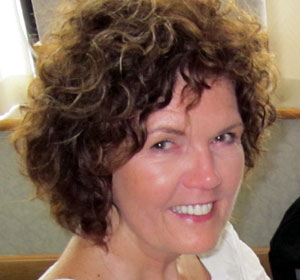04 Jan Divorce in Midlife: Crisis and Opportunity
Dr. Frances Meehan is a therapist who works with adults going through stressful life changes such as divorce.
 Divorce is a major life event that involves upheaval in almost all areas of your life – especially when it occurs in middle age, after many years of marriage. Divorce brings with it a confusing array of emotions and involves significant loss on many levels. Divorce requires you to make major adjustments in long-held values and beliefs, and in your usual ways of thinking and behaving.
Divorce is a major life event that involves upheaval in almost all areas of your life – especially when it occurs in middle age, after many years of marriage. Divorce brings with it a confusing array of emotions and involves significant loss on many levels. Divorce requires you to make major adjustments in long-held values and beliefs, and in your usual ways of thinking and behaving.
The present is in chaos and the future is unknown. Old familiar social roles are disrupted. Mutual friends may take “sides”; married friends may view you as a threat to the stability of their marriage and may distance themselves from you. You may lose relationships with in-laws, people whom you may have embraced as your own family.
New skills must be learned, new options must be pursued, and old familiar patterns must be shed. The amount of stress that can accumulate during the long and difficult process of divorce can be overwhelming and can often produce feelings of depression and anxiety.
It has been shown – by research and experience – that the initiator (or the “leaver”) of divorce fares better emotionally than the “left”, both in the short and long run. It’s not surprising that if you are on the receiving end of the suggestion to separate, you are likely to have more difficulty accepting the breakup, more loneliness, and more longing for the old partner.
Even for the “leaver,” escaping an unsatisfactory marriage may bring a sense of relief, but even still, the marriage and the process of separating can leave the “leaver” also depleted in confidence and morale.
 Anticipation of being alone, worry over meeting practical needs, being attractive to another potential partner, what others will think of you, establishing new routines and acquiring new behaviors – no wonder you may be feeling powerful feelings of anxiety.
Anticipation of being alone, worry over meeting practical needs, being attractive to another potential partner, what others will think of you, establishing new routines and acquiring new behaviors – no wonder you may be feeling powerful feelings of anxiety.
These reactions take many forms from feelings of emptiness and inertia to restlessness and panic. Some people may engage in self-destructive behaviors to calm anxieties, i.e., drinking alcohol, smoking cigarettes, overeating, and indiscriminate sexual behavior.
Linked with the perception of control is the concept of blame. People who blame someone other than themselves, rather than assuming part of the blame for the break up, are usually less accepting of the end of the marriage, more likely to still love and/or hate the partner, to experienced greater anger, to want less contact with the partner, yet may long for the partner nevertheless.
Change brings with it challenges, opportunities, and vulnerabilities. New ways of being must be learned and old patterns must be shed. This process is often long and arduous. In midlife, you have spent more years establishing a particular lifestyle and, therefore, you have more to lose than a younger person does, when your marriage ends.

Often an experienced therapist can be helpful during the divorce process. A therapist can help the divorcing person learn to challenge their own assumptions about blame, helplessness, or hopelessness. The therapist offers strategies and techniques to help the divorcing person challenge and change maladaptive views of the self, the world, and other people.
A therapist can help the client maintain a sense of control over what might seem like an uncontrollable and overwhelming situation. The presence of the therapist who is an objective and empathic partner, collaborator, and coach, and who has considerable knowledge of midlife developmental issues and of the divorce process can lend normalcy to what is often a crazy time. Having someone available who understands what the client is likely to be going through can itself accelerate the healing process.





No Comments